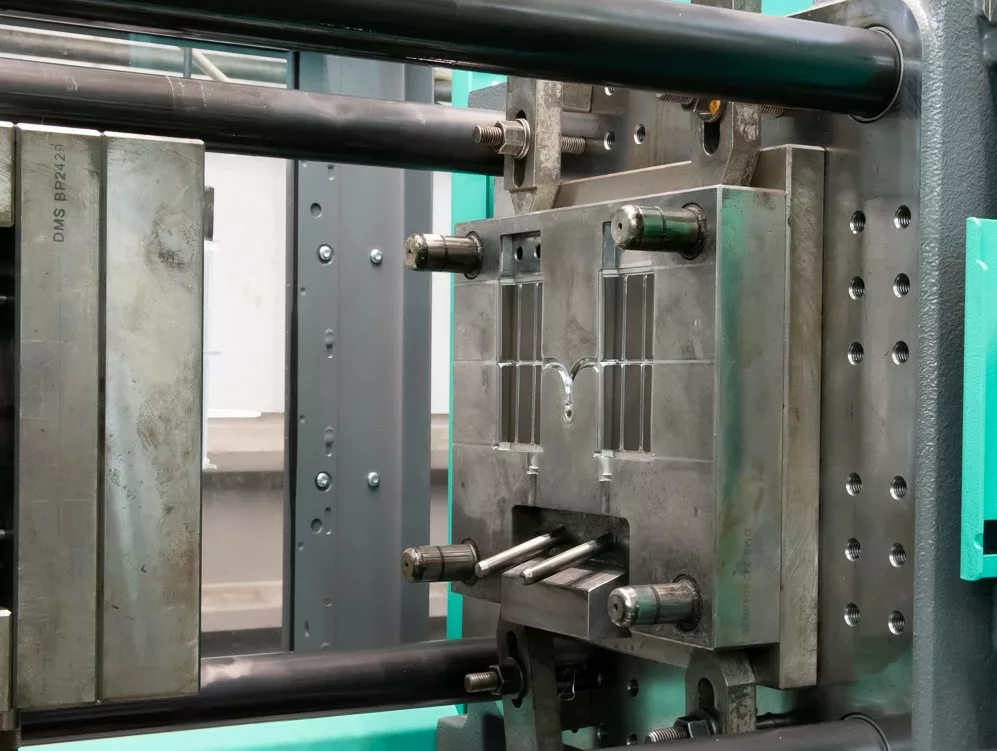
When manufacturing plastic injection mouldings, one of the biggest considerations is tooling. Good tooling is absolutely crucial to the success of moulded parts – producing both good quality mouldings and a mould tool that lasts for many production runs. Some injection moulders outsource their toolmaking to cut costs, or due to a lack of capability or capacity. At moulders such as BEC Group, all toolmaking is kept in-house, which we think greatly improves the outcome and the process.
Read on for the top ten benefits of keeping tooling in-house, to get the most out of your initial investment.
1. Shorter Lead Times
Long lead times are one of the biggest sticking points for tooling customers. By outsourcing to another toolmaker in the UK or abroad, lead times tend to be much longer – particularly when mould tools or injection moulded parts then need to be transported back to the UK.
2. Cost Efficiency
Outsourcing toolmaking might seem cost efficient initially, particularly when offshoring to another country. In the long run, however, this might come back to bite you. The price of shipping and handling as well as tariffs and the cost to your business if shipments are delayed, damaged or mistakes are made due to miscommunication can be very real.
3. Greater Visibility
There’s nothing more exciting than watching your project come to life – but if it’s coming to life on the other side of the country – or even the globe, then you might not be able to! At BEC Group you are more than welcome to come and visit your project during the design, tooling, and moulding stages.
4. Keeping Quality High
It’s all about the quality… When toolmaking is outsourced quality is hard to monitor and maintain. In-house tooling means that quality levels are upheld throughout the process. From the steel quality a mould tool is made from, to machine setting and visual and physical checks- keeping everything under one roof assures quality at every step.
5. Design for Manufacturing
Integration between tooling and moulding is key to the successful moulding of your part. When design, tooling and moulding are co-located as at BEC they are integrated at each stage of the process to produce your moulding. Consideration for tooling and design for manufacture ensure quality and production issues that might occur are ironed out at the design stage.
6. Reduced Risk
Using in-house design, tooling, and moulding greatly lowers risks: risk of design or tooling errors, risk of miscommunication, and risk of delays. Using a single company reduces the likelihood of them happening and costing you time and money.
7. Ease of Communication
Quick and easy communication with your toolmaker makes life so much simpler. If you need to make a change or modification to the tool, then being able to pick up the phone and speak to your toolmaker directly is invaluable. It also me
ans you can have the benefit of discussing tweaks to the tooling and why certain ideas may or may not work without having to go through intermediaries.
8. Increased Flexibility
Design changes, timeline changes and modifications are all common tooling occurrences – using a single co-located toolmaker and mouldshop makes all of these quicker and easier to resolve. Instead of going through several intermediaries, changes can be quickly discussed and implemented.
9. Modifications and Maintenance
Tool modifications, repairs and maintenance are all carried out on site when required at BEC – no shipping off to an outside toolmaker. If there is a problem when moulding, the tool can go straight to the toolmaker to be altered, instead of fitting in to the schedule of another company and being transported there and back.
10. Reliability
Provided you’ve picked a dependable company, then being able to rely on your in-house toolmaker for keeping to timelines, maintaining quality, and affordable pricing will make the entire process seamless.
If you’d like to find out more about tooling or moulding at BEC Group or speak directly to our toolmaker then email hello@becgroup.com or call us on 01425 613 131.


